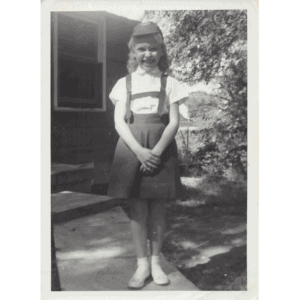 No one had a perfect childhood. We all had experiences that hurt or scared us or made us believe we needed to be something we weren’t.
No one had a perfect childhood. We all had experiences that hurt or scared us or made us believe we needed to be something we weren’t.
Being from a divorced family was much more unique in the 1950s than it is now, and apparently something for a child to be ashamed of. I didn’t realize that until my Bluebird Troop visited our local radio station when I was 7.
The announcer engaged in a live interview with each of the girls. I was so energetic – all twirls and smiles – and so excited to get to be on the radio. When the man came to me, he asked the same questions he had asked of the others, but there seemed to be something very wrong with my answers …
“What’s your name?”
“Debby”
“What does your daddy do?”
“Oh, I don’t have a daddy.”
The expression on the nice announcer’s face changed drastically, and he quickly removed the microphone from in front of me and started talking to the next Bluebird. I was immediately flooded with an overwhelming sense of shame.
It was clear to me that I’d said something terribly wrong, but no one told me what it was. And I was too afraid to ask. So I filed the experience away under an enduring belief about myself: “There’s something drastically wrong with you, but no one will tell you what it is. No one will give you the slightest clue. You’ll have to figure it out for yourself.”
I’ve never forgotten that day, nor the sadness of my dad’s absence. In my little-girl mind, he’d left me for unknowable reasons, setting the stage for my belief about my perceived faults and my conclusion that I would always end up alone.
[callout]It’s not what happened to you growing up that matters.
What matters is the lie you believe about yourself as a result of what happened.[/callout]
What lie are you still believing?



